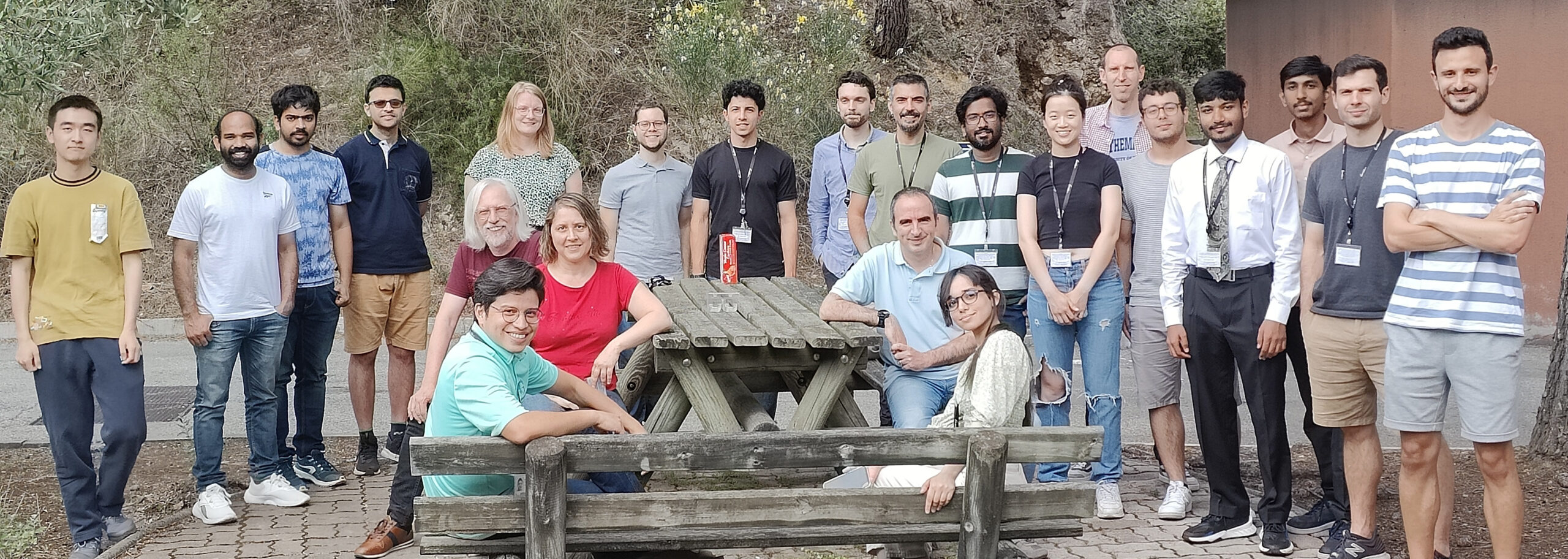The Phd thesis defense of Tareq Si Salem took place on October, 17th, 2022 at 15:00 CET at Amphitheatre Morgenstern, Kahn building, Inria, Sophia Antipolis.
Title: “Online Learning for Network Resource Allocation”
Composition of jury
Advisor :
M. Giovanni Neglia, Research Director, Inria, France
Reviewers :
M. Douglas Leith, Professor, Trinity College Dublin, Ireland
M. Leandros Tassiulas, Professor, Yale University, USA
Examiners :
M. Edmund Yeh, Professor, Northeastern University, USA
M. György Dán, Professor, KTH Royal Institute of Technology, Sweden
M. Walid Dabbous, Research Director, Inria, France
Abstract:
Network resource allocation is a complex and fundamental problem in computer science. It is a process in which components of a networked system aim to provide a faster service to demands, or to reduce the computation or communication load on the system. The main factors that contribute to the complexity of this problem are that the demands arrive to the system in an unpredictable and sequential fashion and may compete for the different network resources. The ubiquity of network resource allocation problems has motivated extensive research to design new policies with provable guarantees. This thesis investigates several instances of the network resource allocation problem and proposes online policies with strong performance guarantees leveraging the online learning framework.
First, we study the online caching problem in which demands for files can be served by a local cache to avoid retrieval costs from a remote server. We study no-regret algorithms based on online mirror descent (OMD) strategies. We show that the optimal OMD strategy depends on the request diversity present in a batch of demands. We also prove that, when the cache must store the entire file, rather than a fraction, OMD strategies can be coupled with a randomized rounding scheme that preserves regret guarantees. We also present an extension to cache networks, and we propose a no-regret distributed online policy.
Second, we investigate similarity caches that can reply to a demand for an object with similar objects stored locally. We propose a new online similarity caching policy that employs gradient descent to navigate the continuous representation space of objects and find appropriate objects to store in the cache. We provide theoretical convergence guarantees under stationary demands and show the proposed policy reduces service costs incurred by the system for 360°-video delivery systems and recommendation systems. Subsequently, we show that the similarity caching problem can be formulated in the online learning framework by utilizing an OMD policy paired with randomized rounding to achieve a no-regret guarantee.
Third, we present the novel idea of inference delivery networks (IDNs), networks of computing nodes that coordinate to satisfy machine learning (ML) inference demands achieving the best trade-off between latency and accuracy. IDNs bridge the dichotomy between device and cloud execution by integrating inference delivery at the various tiers of the infrastructure continuum (access, edge, regional data center, cloud). We propose a no-regret distributed dynamic policy for ML model allocation in an IDN: each node dynamically updates its local set of inference models based on demands observed during the recent past plus limited information exchange with its neighboring nodes.
Finally, we study the fairness of network resource allocation problem under the α-fairness criterion. We recognize two different fairness objectives that naturally arise in this problem: the well-understood slot-fairness objective that aims to ensure fairness at every timeslot, and the less explored horizon-fairness objective that aims to ensure fairness across utilities accumulated over a time horizon. We argue that horizon-fairness comes at a lower price in terms of social welfare. We study horizon-fairness with the regret as a performance metric and show that vanishing regret cannot be achieved in presence of an unrestricted adversary. We propose restrictions on the adversary’s capabilities corresponding to realistic scenarios and an online policy that indeed guarantees vanishing regret under these restrictions. We demonstrate the applicability of the proposed fairness framework to a representative resource management problem considering a virtualized caching system where different caches cooperate to serve content requests.

